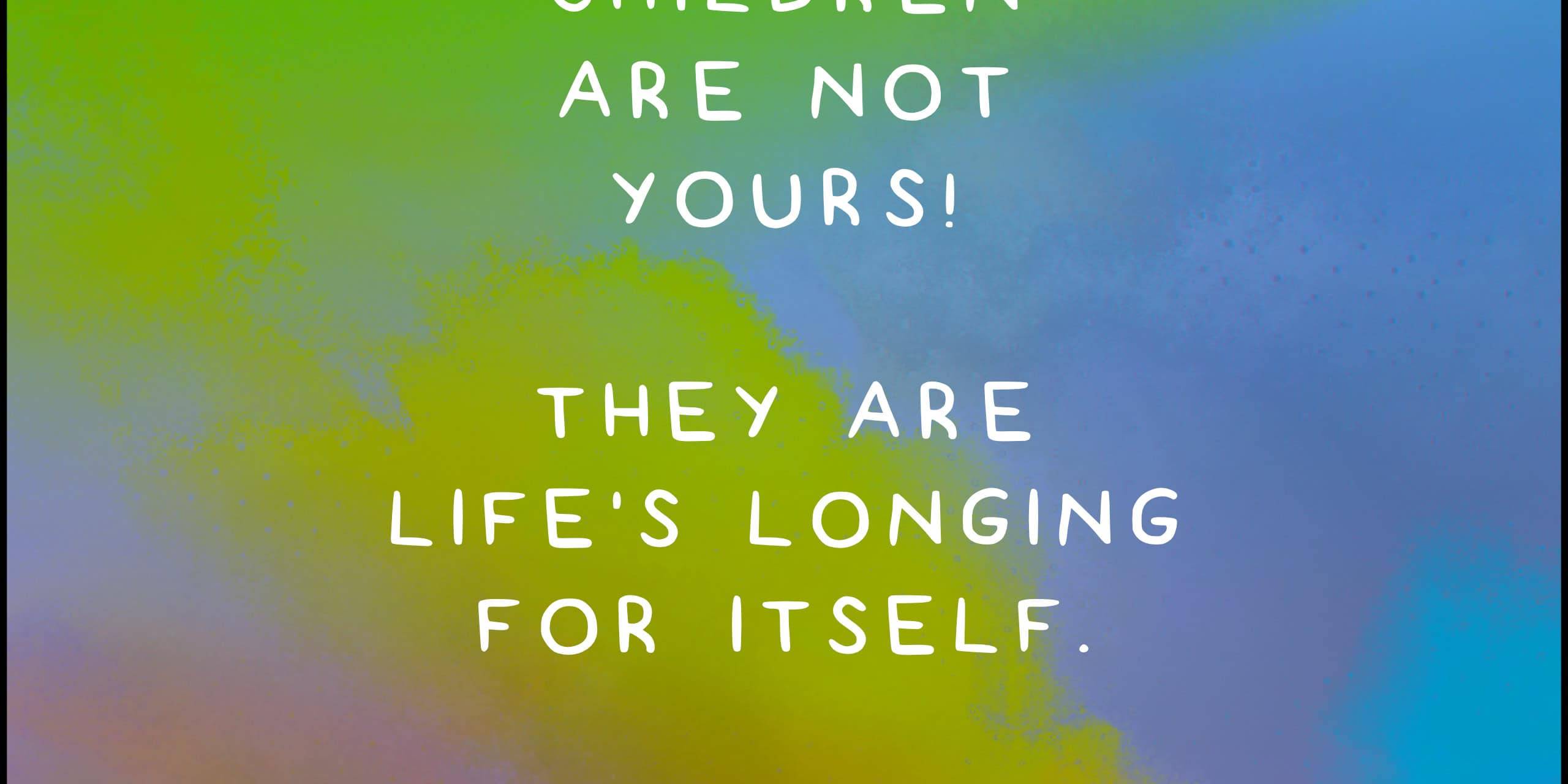We’re not sculptors of children.We’re gardeners, tending to growth
"We can’t force a seed to grow into something it is not."
Every seed holds a secret inside it—a blueprint for what it’s meant to become. Whether it grows into a cucumber, a rose, or a towering oak, everything it needs to fulfill its potential is already there from the start. The seed doesn’t need to be shaped, sculpted, or told what to do. It just needs the right conditions: good soil, sunlight, water, and care.
And here’s the thing: we can’t force a seed to grow into something it’s not. The gardener doesn’t create the seed’s potential—they don’t make the seed, and they can’t unmake it either. The gardener’s role is not about control. It’s about observation and care—about making sure the seed has what it needs to thrive.
When we think about raising children, isn’t it the same?
Children Are Whole from the Start
From the moment children are born, they are already whole, complete beings. Yes, they’re small, and yes, they have a lot to learn about the world and how to navigate it. But they’re not blank slates waiting for us to write their story. They already carry within them everything they need to become who they’re meant to be.
Our role isn’t to mold them or shape them into an image we think they should fit. We’re not sculptors, carving away to create something out of raw material. Instead, we’re gardeners, tending to what’s already there. We create the conditions where their unique nature can unfold, where they can grow into the person they’re meant to become.
Trusting in What’s Already There
This might feel like a radical shift from how many of us were raised. Maybe we grew up with the idea that children need to be “made” into something—obedient, successful, good at school, polite, or strong. There’s often this unspoken fear that if we don’t steer them in the “right” direction, they’ll somehow fail to become anything at all.
But when we step back and really look, we can see that children don’t need us to control them. They need us to trust them. Just like a seed already knows how to grow, children come into the world with everything they need inside them. They don’t need us to decide who they are. They need us to support their journey in becoming who they already are.
“It’s about observation and care—about making sure the seed has what it needs to thrive.”
What Does It Mean to Be a Gardener?
Being a gardener doesn’t mean standing back and doing nothing. Far from it. A gardener works hard—but their work is about care, not control.
For us as caregivers, this means:
- Providing the Right Environment: Every plant needs different conditions to thrive, and every child does too. Some kids need lots of encouragement and reassurance; others need space to figure things out on their own. Our job is to pay attention and offer what’s needed for that child, not what we think “all kids” should need.
- Observing Without Interference: Gardeners don’t yank on plants to make them grow faster. We can’t force our children to develop at a pace that isn’t natural for them. Growth happens in its own time, and our role is to notice and nurture what’s unfolding, not rush the process.
- Letting Go of Expectations: Sometimes, we imagine what we want our children to become—just like someone might wish for a garden full of roses, only to find themselves with cucumbers instead. It’s not easy to let go of those expectations, but it’s necessary. What our children are meant to become is not up to us.
- Supporting Growth Through Challenges: Plants face storms, pests, and harsh conditions. Kids will face their own challenges too. Being a gardener doesn’t mean shielding them from every difficulty. It means being there to guide and support them as they learn to navigate life’s ups and downs.
Children Are Seeds, Not Sculptures
It’s tempting to think of parenting as shaping a masterpiece. The idea that we have control can feel comforting because it gives us a sense of purpose and responsibility. But children aren’t lumps of clay for us to mold. They’re seeds.
And when we try to force them into something they’re not, we risk breaking their spirit. We risk covering up the unique qualities that make them who they are.
Our job isn’t to make them; it’s to help them become. To do that, we need to trust in their completeness—their wholeness—even when it doesn’t look the way we expected.
Respect, Not Control
If we’re honest, a lot of what we think of as parenting is about control. We worry about how our kids will turn out, and that worry can lead us to micromanage every little detail of their lives.
But children don’t need control. They need respect. Respect for who they already are, even when they’re messy, loud, or challenging. Respect for the way they learn and grow, even if it doesn’t match our timeline or preferences.
When we respect our children, we stop trying to force them into boxes that don’t fit. We stop trying to make them “better” versions of themselves and start seeing the beauty in who they already are.
What Happens When We Trust
When we shift from control to trust, something amazing happens:
- Our children feel seen. They know we value them for who they are, not just for what they achieve or how well they behave.
- We feel less pressure. Letting go of the idea that we have to “make” our children successful frees us to enjoy who they are right now.
- Growth happens naturally. Just like a seed doesn’t need to be forced to grow, kids thrive when they’re given the right conditions and the freedom to unfold at their own pace.
Parenting Is About Growth—for Us Too
Being a gardener isn’t always easy. It means setting aside our own egos and letting go of the need to control. It means learning to trust in something bigger than ourselves: the innate wisdom within each child.
But in doing so, we grow too. We learn to see the world with more wonder, to trust the process of life, and to appreciate the beauty of growth—messy, unpredictable, and full of surprises.
Because just like children, we’re seeds too. And maybe, as we help them grow, we’re learning how to grow into ourselves as well.
You may also like
Do you really want to get better? There is a chance you don’t
Sometimes, we might say we want to get better. Obviously.…
Children are not possessions
Children are not possessions. They are beings in their own…
Imagine if the Lively/Baldoni controversy had nothing to do with sexual assault
Imagine if it was about jealousy spiraling out of control.…




